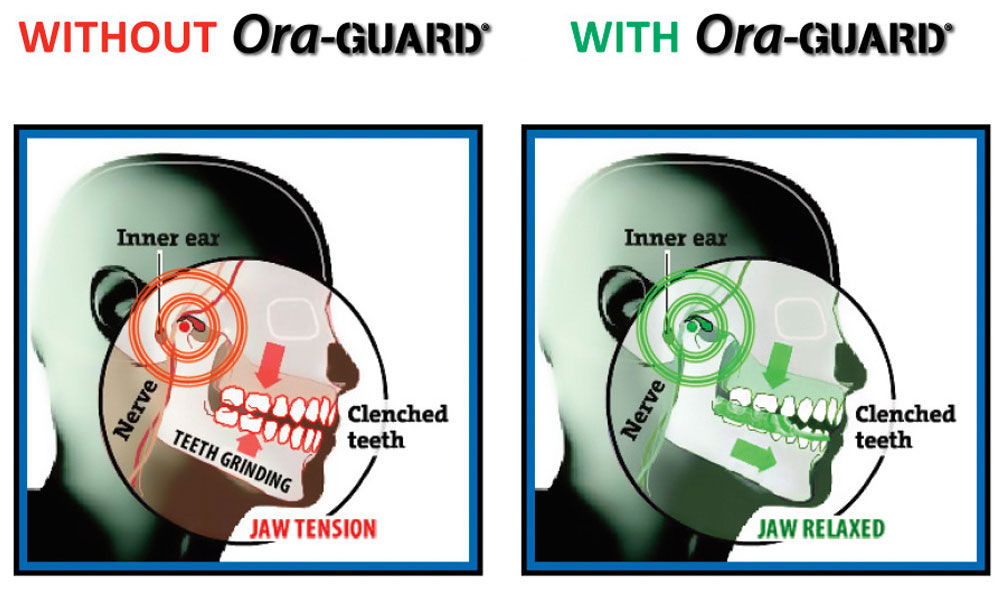(NewsUSA)
Bruxism is more common than most people realize — approximately 1 in 6 American adults suffer from it.
Signs of bruxism include teeth pain or sensitivity, as well as pain in the jaw, neck, or inner ear. If left untreated, bruxism also can cause permanent damage to the teeth by wearing away the protective enamel. And compromised enamel also increases the risk of developing cavities and gum disease.
Bruxism is most often caused by stress and, although there is no specific medication or treatment to cure bruxism, the condition can be managed successfully by using a nighttime dental guard as part of a regular oral health care routine.
One problem, however, is that current products wear down quickly or don’t position the jaw to relieve the symptoms of bruxism sufferers.
Enter the Ora-Guard Dental Grind Guard, a newly designed product that has been reviewed and cleared by the U.S. Food & Drug Administration for use by patients with bruxism.
This nighttime dental guard is made of a soft, medical-grade material designed for comfort and to help absorb the pressure of jaw clenching.
Unlike other products available, the guard also features hard- surface molar pads to protect the teeth from the back-and-forth grinding pressure of nighttime bruxism.
The unique 2mm bite wedge design naturally slides the lower jaw down and forward, and has clinically shown to increase the airway by 30 percent, aiding in more natural breathing during sleep.
In addition, Ora-Guard is significantly less expensive than a customized dentist-made grind guard. An easy, individualized custom fit can be obtained with the simple 60 second microwave fit procedure.
A flexible labial strap allows the guard to accommodate most mouth sizes, and T-bars along each side help to hold it securely in place. Another key feature is the low level of maintenance: simply rinse the guard with mouthwash or water before using it at night and store it in the accompanying case during the day.
Because of its more advanced materials, the life of this guard is more than six months compared to current guards, which have a much shorter life span.
Visit www.ora-guard.com for more information about identifying and managing bruxism.

